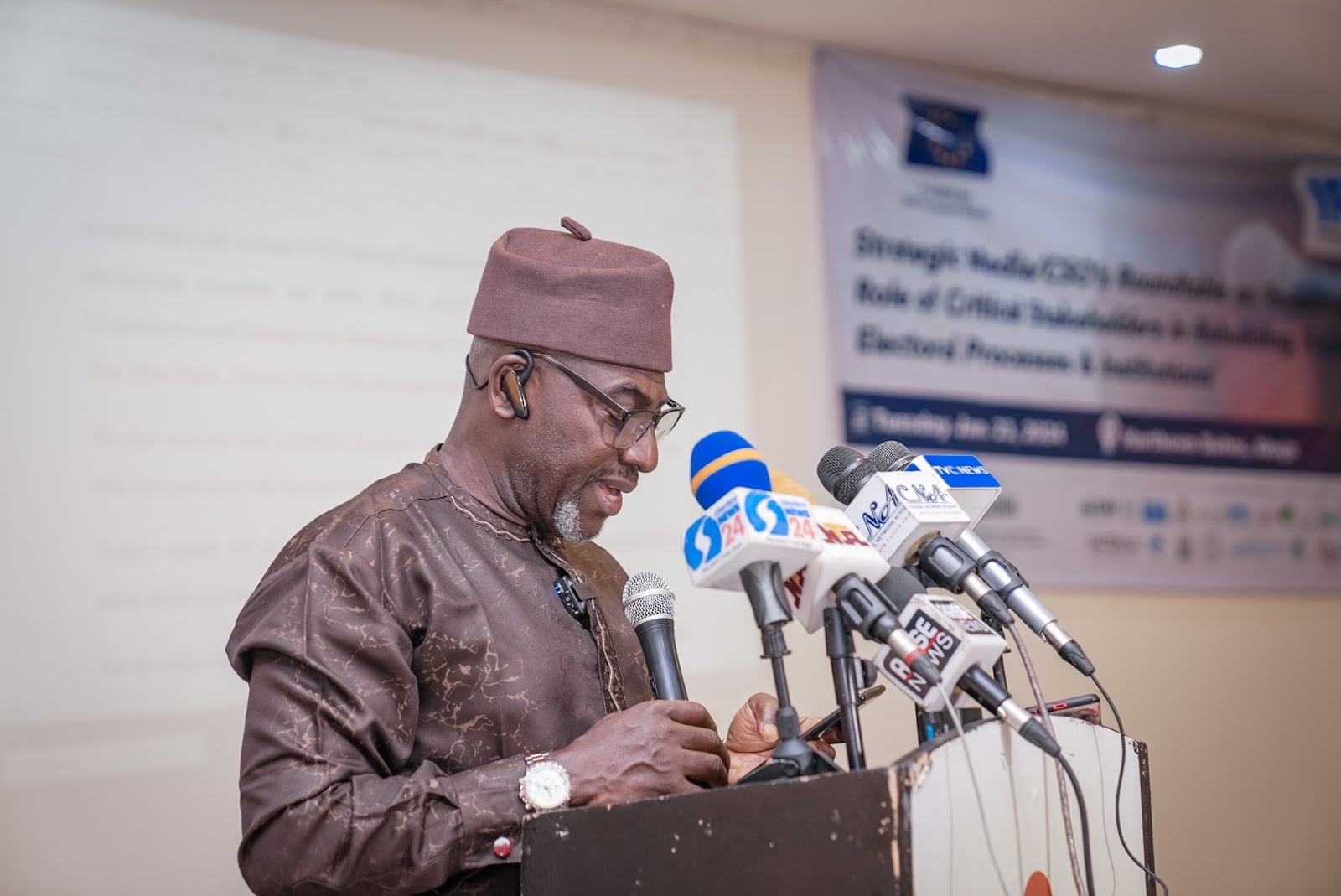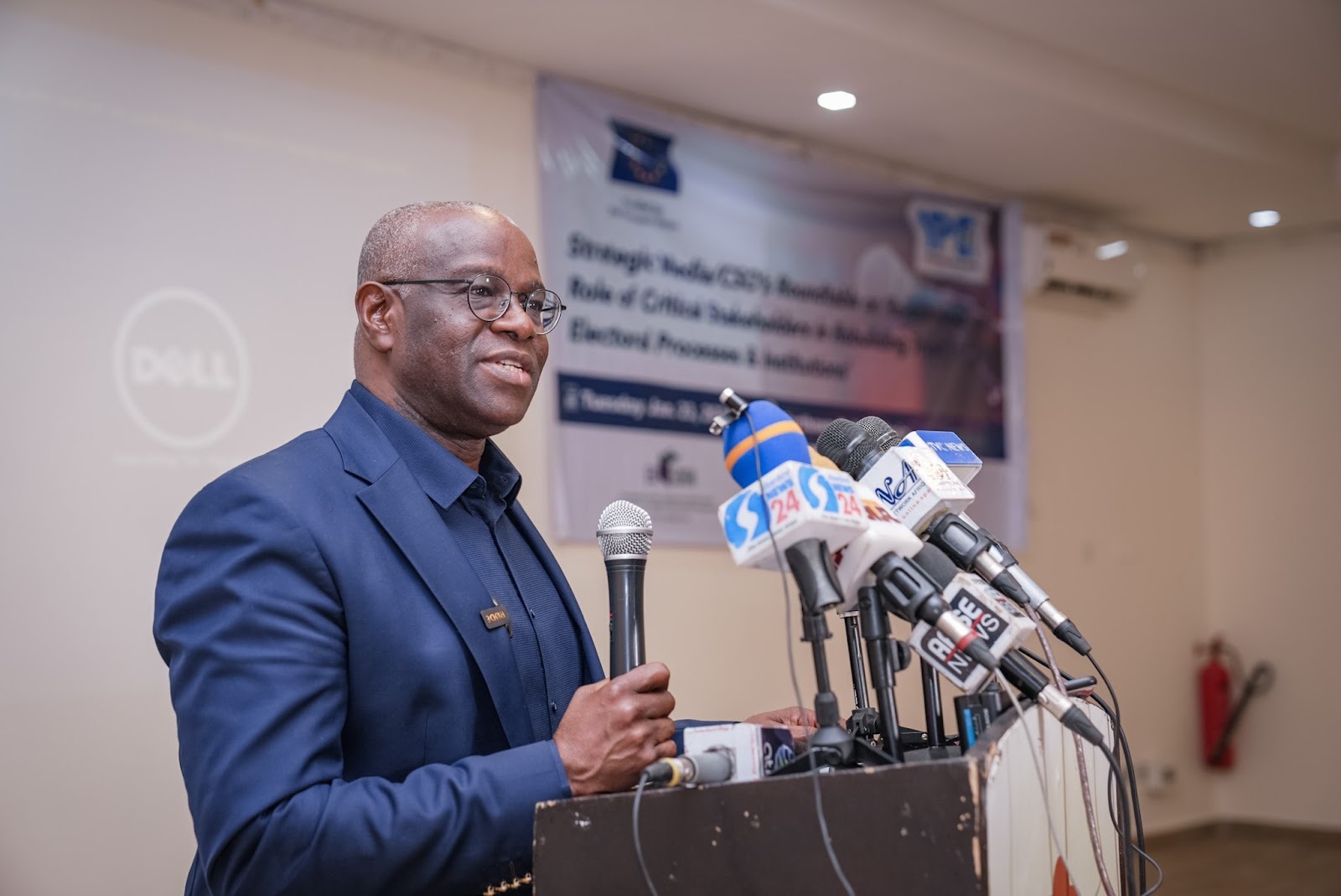BY CHIKA OKEKE, Abuja
Lanre Arogundade
The International Press Centre (IPC) Lagos has enjoined the media and journalists to hold critical stakeholders responsible for flaws in the electoral process.
Executive Director of IPC, Mr Lanre Arogundade stated this on Tuesday in Abuja at a one-day Media/Civil Society Organisations (CSOs) roundtable, organised by International Press Centre (IPC) Lagos, under the European Union Support to Democratic Governance in Nigeria-Phase 2 (EUSDGN II) project.
The critical stakeholders are the government, security and law enforcement agencies, election management body such as INEC, SIEC; political parties and their candidates, civil society, citizens, observers and monitors.
Arogundade said that the stakeholders are expected to play crucial roles for Nigeria to have credible elections, which serve as the basis of public trust.
The theme of the event, "Re-examining the Role of Critical Stakeholders in Rebuilding Trust in the Electoral Processes & Institutions", was designed to enhance the credibility of INEC and improve the electoral processes by providing accurate information to the public.
He said: "The question of whether we have done enough to hold these important stakeholders accountable is one that we should honestly answer going forward.
"The media and journalists shoud realise that they are accountable and should be accountable to the society during the electoral processes and elections. In other words, being non-accountable can also affect the credibility of elections."
Arogundade disclosed that based on the provisions of the laws governing elections and the statutory and non-statutory regulatory frameworks, the accountability functions of the media include being factually accurate, avoiding biases, prejudices and hate speech; being conflict sensitive and refraining from being part of information disorder, misinformation and malinformation.
He stated that the media and journalists are also accountable based on their agenda setting and social responsibility theories, just as he wondered if the agenda set by the media during the elections tallies with public interest.
The executive director was optimistic that the discussions would strengthen stakeholders' collaboration in deepening the electoral process by creating new synergies with INEC to safeguard the electoral process.
While appreciating the European Union for providing the funding for the project, he informed that the 2023 general elections highlighted unexpected challenges although it accomplished significant milestones particularly in the use of technology for voting via Bimodal Voter Accreditation System (BVAS).
He pointed out that the pitfalls led to extensive monitoring both from national and international observers, which partly reflected waning public confidence and trust in the electoral process.
The executive director hinted that the European Union- Election Observation Mission (EU-EOM) made 23 recommendations for improvement while presenting their report on the elections.
"Additionally, IPC’s media monitoring activity of 20 print/online media and INEC social media over the past one year also revealed some elements of negative perception by some citizens about the electoral processes and outcomes, while there are those who hold that things were not as bad as portrayed.
"Generally, the observations show that the election stakeholders still have much work to do individually and collectively to rebuild trust.
"Therefore, as we approach two off-cycle governorship elections in Edo and Ondo States this year and in view of the next general elections in 2027, this activity is deemed necessary to aid the process of developing strategic interventions that can contribute towards regaining public trust, while promoting the delivery of free, fair, peaceful and credible elections in the country, "he added.
An Election Administration Expert, Development Alternatives Incorporated (DAI), Prof Okechukwu Ibeanu listed five things every electorate should know about trust and the electoral process in Nigeria.
Prof Okechukwu Ibeanu
"First, in a society where there is already a deficit of trust in institutions, it is likely to rub-off on the trust we have in electoral institutions.
"Secondly, what other agencies do or failed to do could be more important than what the electoral management body does in terms of understanding the institutional deficit. The crisis in the electoral process usually begins with political parties on how they select their candidates.
"Thirdly, in a society where there is trust deficit, every election tends to worsen the level of trust on the system. Somebody has to win in an election and somebody will also loose.
"Fourthly, it is not necessarily that trust deficit is the problem, but institution deficit is always there in a society of generalised lack of trust. It is about the level of mistrust in the system. In democracy worldwide, there is a growing sense of despondency.
He ended by saying that the assumption to use technology to rebuild trust might be a delusion.


Comments
Post a Comment